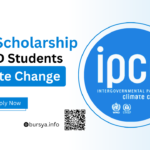Intergovernmental Panel on Climate Change (IPCC)
The Intergovernmental Panel on Climate Change (IPCC) is a UN body that advances scientific knowledge on climate change caused by human activities. Established in 1988 by the World Meteorological Organization (WMO) and the United Nations Environment Programme (UNEP), it operates from Geneva, Switzerland, with 195 member states.
The IPCC assesses scientific literature on climate change, including its natural, economic, and social impacts, without conducting original research. Thousands of experts review findings, compiling Assessment Reports that inform policymakers and the public. This process is considered the largest peer review in the scientific community.
IPCC reports play a crucial role in global climate negotiations, including the Paris Agreement (2015). The panel shared the 2007 Nobel Peace Prize with Al Gore for its contributions to climate science. The Seventh Assessment Cycle began in 2023, following the Sixth Assessment Reports and special reports on global warming, land use, and oceanic changes.
Read more about the IPCC on its official website.




